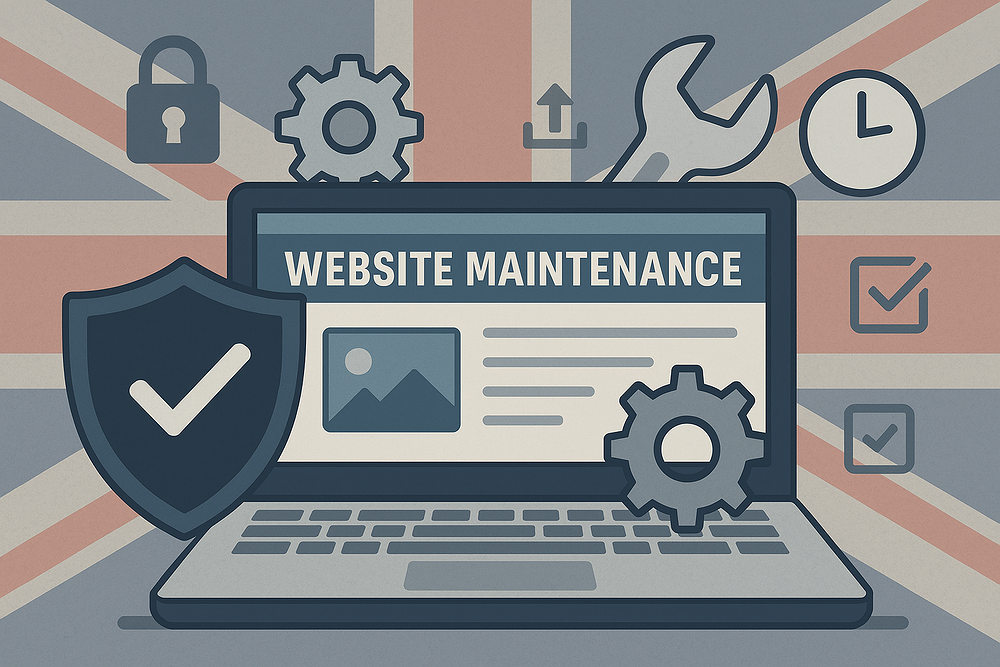5 Signs Your UK Business is Ready for Automation

In today's rapidly evolving digital landscape, automation isn't just a buzzword; it's a strategic imperative for UK businesses that want to remain competitive, efficient, and profitable. If you're contemplating whether automation is right for your company, understanding the clear indicators that your business is ripe for automation is crucial.
Here are five definitive signs that your UK-based business is ready to embrace automation.
1. You’re Swamped with Repetitive Tasks
One of the strongest signals that your business is ready to leverage automation is an overwhelming amount of repetitive, manual tasks consuming your team's valuable time. Whether it's data entry, invoicing, email responses, or managing social media posts, these monotonous tasks not only eat into productivity but also drain employee morale.
Automation software, such as Robotic Process Automation (RPA), can handle these repetitive tasks efficiently and accurately, freeing your employees to focus on higher-value work like strategic planning, customer service, and creative problem-solving. For example, automating invoicing and payment reminders can drastically reduce late payments, improve cash flow, and eliminate tedious manual follow-ups.
2. Customer Service is Becoming Harder to Manage
Customer expectations have risen dramatically in recent years, fuelled by instant access to information and swift online service experiences. If your business struggles to manage customer enquiries or complaints promptly and efficiently, it might be the perfect time to automate your customer service operations.
Automation tools such as AI-powered chatbots can handle many routine customer queries instantly, ensuring your clients receive immediate responses at any time, day or night. This boosts customer satisfaction and allows your human team to handle more complex issues, providing a better overall customer experience.
For instance, chatbots can efficiently manage common questions about products, order statuses, or service requests, leaving your support team free to address more personalised customer interactions.
3. Errors Are Increasing Due to Manual Processes
Human error is inevitable in businesses heavily reliant on manual processes. Even small mistakes, such as incorrect data entry or missed appointments, can lead to significant consequences, including lost revenue, unhappy customers, and diminished brand reputation.
Automation significantly reduces errors by eliminating the reliance on manual input for repetitive tasks. By integrating automation software into your workflow, processes become consistent, accurate, and reliable. For example, automated data entry and management systems ensure accuracy and consistency across your customer databases, financial records, and inventory management.
4. Scaling Your Business Feels Daunting
If the thought of scaling your business makes you feel overwhelmed, it's often a clear indication that your current processes won't handle growth effectively. Manual processes that were manageable at a smaller scale can quickly become inefficient, error-prone, and costly as your business expands.
Automation provides the foundation needed for scalable growth. By automating critical operational areas like inventory management, order processing, marketing campaigns, and financial reporting, your business can grow seamlessly without proportionate increases in overhead or complexity.
Consider the example of automating marketing campaigns: tools that schedule, target, and analyse marketing activities across multiple platforms can handle increased campaign complexity, audience segmentation, and analytics as your business grows, without the need for a large marketing team.
5. You're Struggling to Gain Competitive Advantage
Today's business landscape in the UK is fiercely competitive, with new market entrants and rapidly innovating competitors always on the horizon. If you're finding it increasingly challenging to maintain or achieve a competitive edge, automation could be your secret weapon.
Businesses that embrace automation gain considerable advantages, such as faster service delivery, better customer experience, reduced operational costs, and improved decision-making capabilities through advanced analytics and real-time data insights.
For instance, automating your supply chain management can significantly improve your responsiveness and agility, helping you outpace competitors who are still reliant on manual inventory tracking and replenishment processes. Automated analytics tools also provide invaluable insights into customer behaviours and market trends, enabling your business to adapt rapidly and strategically to market shifts.
Implementing Automation Effectively
Recognising the need for automation is just the first step; effective implementation is crucial. Here’s how you can smoothly transition to automation:
- Identify Key Areas for Automation: Evaluate your processes to determine which areas would most benefit from automation. Begin with repetitive, error-prone tasks and gradually scale to more complex processes.
- Engage Your Employees: Change can be challenging, so it's essential to involve your team early. Clearly communicate the benefits automation will bring, including reducing mundane tasks and enabling them to focus on more fulfilling work.
- Choose the Right Automation Tools: Partner with reputable technology providers specialising in automation tailored to the needs of UK businesses. The right vendor will not only provide tools but also offer training and ongoing support.
- Start Small and Scale Up: Implement automation incrementally, focusing on high-impact areas first. Assess effectiveness regularly and refine your approach based on feedback and measurable outcomes.
The Future is Automated
Automation is rapidly becoming a necessity rather than a luxury for UK businesses aiming to thrive in an increasingly digital-first world. By recognising these five signs, your business can proactively implement automation strategies, improving efficiency, reducing costs, and enhancing competitive advantage.
The sooner your business embraces automation, the faster you'll experience its transformative impact—enhanced productivity, superior customer service, increased profitability, and a solid foundation for sustainable growth. Now is the time to harness automation and drive your UK business forward into a smarter, more efficient future.
Talk to us about your next project
Our team of experts is ready to help bring your ideas to life with solutions tailored to your business.
Get in Touch

